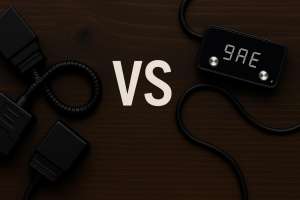To err is human. Everyone makes mistakes at some point in their life. Sadly, some mistakes come with legal consequences.
Legal convictions have severe outcomes, excluding jail time, that may directly or indirectly disrupt your day-to-day life. Hence, it is vital that you get in touch with criminal defense attorneys as soon as possible to fight for your cause.
Criminal charges carry repercussions even after jail time. Here are nine ways a conviction can affect a person’s life.
Damaged Reputation
This is perhaps one of the worst consequences of being convicted of a criminal charge. In some cases, even accusations can have devastating effects. Those around people with criminal charges, even friends and family, may distance themselves or avoid them altogether. The negligence, in turn, may lead to loneliness, feelings of shame or guilt, depression, self-destructive behavior, and unhealthy coping methods.
Employment
This is one area where people charged with criminal cases suffer the most. Employers do not consider applications sent by ex-convicts or those with criminal charges. The employer may worry about the potential loss of image or the safety concerns that may arise after employing a person with criminal charges.
Hiding one’s criminal records can also be disastrous, as employers run background checks on potential employees and can terminate the contract they have offered.
Housing
Landlords get iffy when their potential renters have been to jail or have criminal records. Like employers, landlords will ask for a person’s criminal background before renting property. In some cases, banks deny mortgages to applicants with past criminal behavior. Both these reasons contribute to the high number of incarcerated people among the homeless.
The Right to Vote
Also known as disenfranchisement, citizens convicted of a felony will be denied their right to vote. Some jurisdictions may restore their voting rights after a specific time period or if they have completed parole or probation. As of 2022, 4.6 million Americans, roughly 2% of the voting-age population, have their voting rights revoked due to felonies.
Driver’s License Limitations
A citizen convicted of crimes like DUI (Driving Under the Influence), DWI (Driving While Intoxicated), and other felony offenses like murder, rape, burglary, and vehicular manslaughter will have their driving licenses either suspended or canceled depending on the seriousness of the crime. Repeat offenders of DUI will have to install an Ignition Interlock Device (IID) in their vehicles.
Education
Some universities and educational institutions may deny admission to citizens with a criminal past, even if it was a misdemeanor. There are even studies that show that questioning an applicant’s criminal history is a part of their admission process.
Citizenship
A criminal charge against a foreign national will hinder their chances of getting a green card. In extreme cases, people may even lose their jobs and be deported.
Custody of Children
Though it is possible, it is very difficult for citizens with criminal charges to get custody of their children. The situation becomes trickier when the charges involve domestic abuse or other similar crimes.
A criminal charge will also interfere with the right to adopt a child, as U.S. Federal Law requires citizens to be subjected to criminal background checks when adopting a child.
Firearms
The U.S. Federal Law forbids a person with criminal charges from owning or using a firearm. The ban is applicable to citizens charged with a felony and certain misdemeanors. A citizen who is found in possession of a firearm despite the ban will face up to 10 years in federal prison and a fine of $25,000.
What Can You Do?
A criminal charge is a serious, life-changing occurrence. Anyone may be charged with a crime, intentionally or unintentionally. When this happens, the recommended and best course of action is to approach an experienced and knowledgeable defense lawyer. They will speak on your behalf, explain your rights, and put in the effort required to reduce your punishment.






